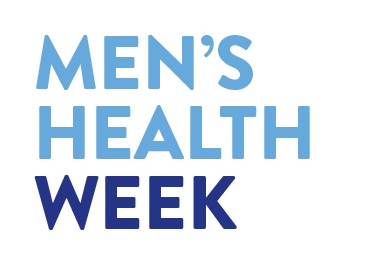What are Toolbox Talks?
For employers and team leaders, toolbox talks are a way to get over key health messages in a short accessible manner. For your team members, toolbox talks are a fun and informative fifteen minutes that will help them live and work more healthily.
Why are they called Toolbox Talks?
Because we originally developed them with the construction industry who often give their workers a short safety talk on issues such as hard hats or safe scaffolding. These talks are often called Toolbox Talks. We were asked by our partners to develop talks around more general men’s health topics. Toolbox Talks are now available for anyone in any industry - they put the health into health and safety. And they work even if the most dangerous thing in your office is the staple gun.
How do I deliver a Toolbox Talk?
There's no prescribed way to use the resource. They provide a variety of stimuli that you can tailor to the type and size of the audience and the time available.
There are basically two sheets. The easiest way is to print them both out (in this way the talk can be delivered pretty much anywhere). The first sheet should should be page 1 only. The second sheet should be page 2 backed with page 3. But if you don’t want to use paper, you can project the material on a screen or laptop.
One sheet (page 1) you give out at the start. It’s got a quiz, some images (photos and/or cartoon) and various discussion points to get people thinking. How many quiz questions, images or discussion points you cover will depend on the time available. The talks will provide you with enough material for up to an hour but they can also work as a stimulus for a session as short as 10-15 minutes.
There’s a second sheet (pages 2 and 3) with all the answers, the key take-home points and more detailed information if need be – all based on our Department of Health Information Standard website information. This provides all the necessary information for whoever is leading the session. If you wish this sheet can also be given out to everyone at the end of the talk and either read through as a group or at home depending on time available and what is most appropriate.
With a little preparation, anyone who has a bit of training experience will be able to deliver one of our Toolbox Talks. Or we can come in and do it for you.
What topics are available?
We're developing new topics all the time but the current list includes:
- How to quit smoking
- Sleep well, feel better
- NHS screening for older men
- Avoid skin cancer
- Avoid drink problems
- Beat stress and anger, build resilience
- How to spot symptoms
- How to enjoy safer sex
- Eat well, feel better
- What do erection problems really mean?
- How to look after your feet at work
How do I get the talks?
You can see the latest available range of toolbox talks (including free downloads) via our online shop.
We can also come in and deliver a 45-50 minute session built around two or three toolbox talks. This costs £500 + VAT plus travel.


